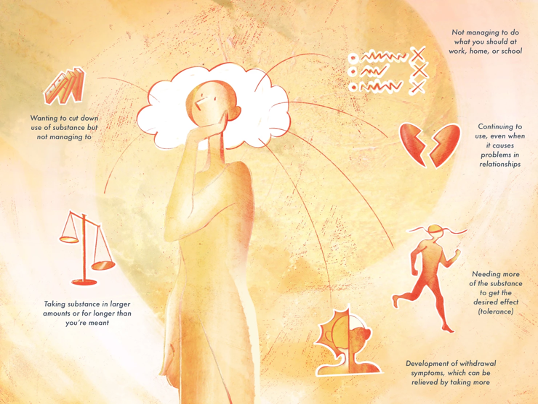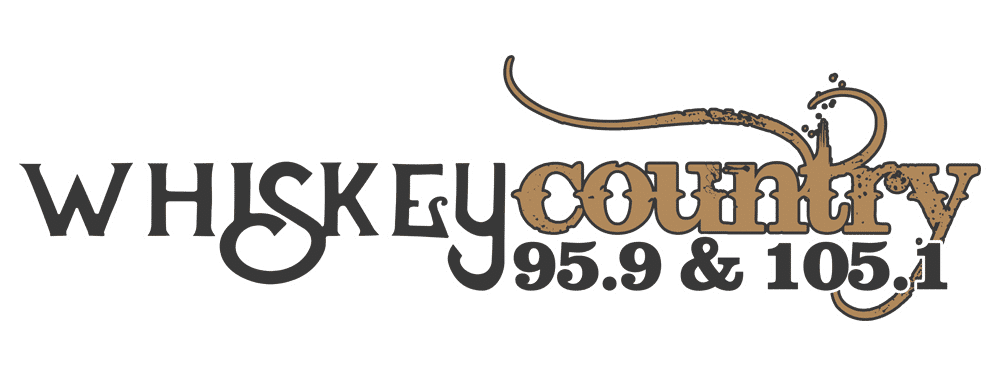Last month, we introduced the topic of addiction. This month, we will examine the effects of drugs on the brain and body to better understand the behaviors and reactions of those struggling with active substance use addictions. The Diagnostic and Statistical Manual of Mental Disorders, Fifth Edition, (DSM-5_ is the resource professionals in the field use to accurately diagnose a substance use disorder and understand it’s severity. Below is a picture showing some of the major criteria used to identify a substance use disorder:

So, what is it about substances like alcohol or opiates that can really ruin people’s lives?
Substances that are especially addictive stimulate what is called the brain’s rewards system. This is the brain’s natural way of identifying certain behaviors that are rewarding, for example, eating a meal, taking care of one’s family, intimacy, and listening to some good music. In each of these very normal activities the brain’s rewards system is telling us, “these activities are meaningful.” One of the reasons alcohol and opiates can be so destructive is they stimulate the reward system in more powerful way, and over time, rewire the brain to seek the pursuit of the pleasure using a drug brings instead of taking care of oneself or one’s family.
There are many downsides to using drugs, but the biggest is how the brain adapts to whatever addictive substance you give and needs more of it to feel the same effect. This is called tolerance. Another downside is that addicts, without the substance to take, feel the opposite of how the substance makes you feel
For example, I like coffee and tea. Coffee has caffeine in it. Caffeine is a stimulant that provides more focus, alertness, and is an effective way to wake up quicker in the morning. However, the more often I drink coffee in the morning the more my brain and body adapt to the effects the coffee provides, and the less I feel normal with the same amount of coffee. So what do we all do? We drink a little more coffee, and on we go until we NEED coffee to help us feel anywhere near normal every morning. What started as a pleasurable ritual in the morning, over time, turns into being in a bad mood, or not being able to focus in the mornings without coffee.
This example, applies to other substances. If drinking alcohol takes the edge off, and you misuse alcohol, you will feel on edge without it. If methamphetamine makes you feel self-worth and driven to conquer the trials of life, when you don’t have it, you will feel worthless, with little motivation in life. This is also known as withdrawal, your body’s attempt to balance itself out again. The more severe a response is to a certain drug, the more severe the response will be when you don’t have it, especially with drugs of addiction.
Exercise:
Take an inventory of your life, what are those substances or habits you engage with daily, or weekly? If you are a coffee drinker, consider taking a day off from partaking and see how your body, mind, and behavior react.
Outpatient Addiction and Recovery Community Mental Health 482 Interstate Drive, Suite D 1615 McMinnville Highway Manchester, TN 37355, Hours: Mon-Fri 7:15am-5:00pm/Sat,Sun-Closed P| (931) 444-1000 Manchester, TN 37355, Hours: Mon-Fri 7:15am-5:00pm/Sat,Sun-Closed P| (931) 450-8255
If you or someone you love struggles with addiction or mental health concerns, contact us today.
References:
Grisel, J. (2020). Never enough: The neuroscience and experience of addiction. Anchor Books, a division of Penguin Random House LLC.
Navigating Addiction and Treatment: A Guide for Families, Addiction Policy Forum, 2020.












